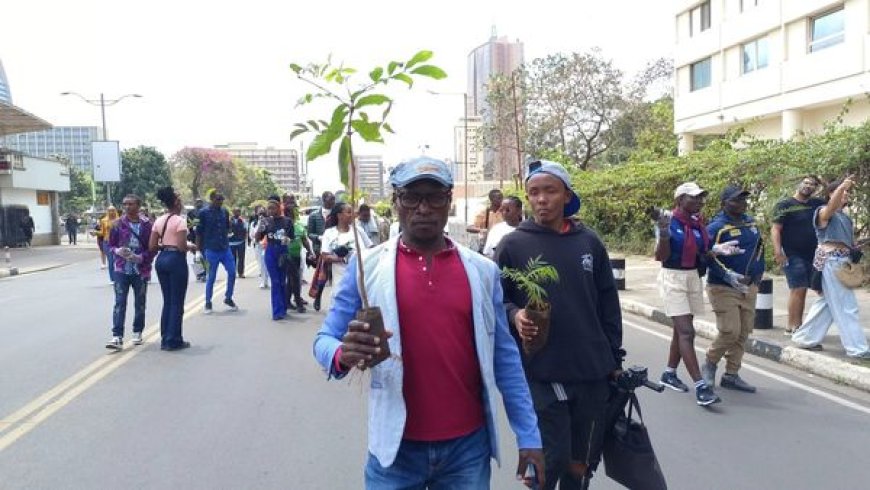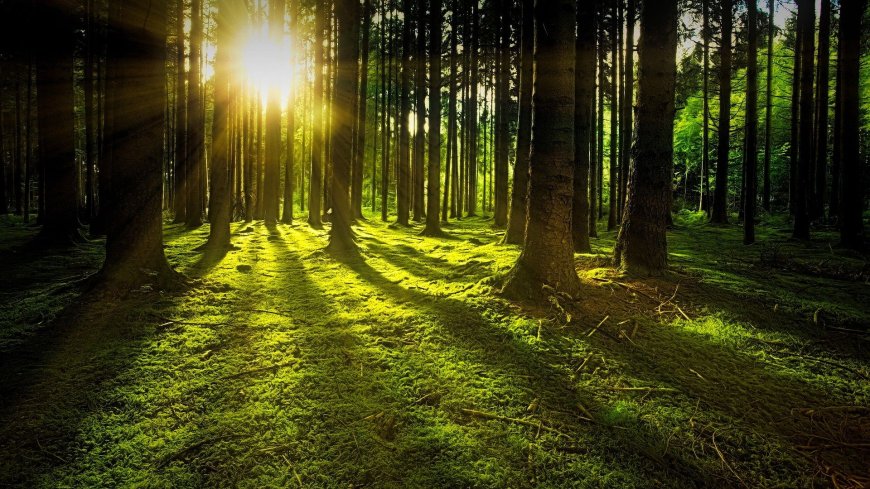The Significance of Planting Trees: A Key to Sustainable Growth
Trees are essential in maintaining ecological balance and supporting life. As the world faces challenges like deforestation, urbanization, and climate change, the need for tree planting has become more urgent. Trees play a vital role in addressing climate change by absorbing carbon dioxide (CO2), a major greenhouse gas, and releasing oxygen. A mature tree can absorb up to 48 pounds of CO2 each year, helping to lower the concentration of this harmful gas in the atmosphere. Planting trees on a large scale is a crucial way to reduce carbon emissions and curb global warming.
In addition to addressing climate change, trees naturally purify the air. They absorb pollutants such as nitrogen oxides, sulfur dioxide, ammonia, and ozone. Trees also trap dust, smoke, and other particles in the air, which helps reduce respiratory issues, particularly in urban areas. Cities benefit from tree planting initiatives, as they significantly improve air quality, making the environment cleaner and healthier for residents.
Another important contribution of trees is in conserving biodiversity. Trees provide shelter, food, and habitats for countless species of animals, birds, insects, and microorganisms. By planting trees, we help create ecosystems that support diverse life forms. Forests act as sanctuaries for endangered species, helping to prevent the extinction of both plants and animals.
Trees also play a critical role in preventing soil erosion. Their roots stabilize the soil, reducing the impact of wind and water. In areas that experience heavy rainfall or floods, tree roots help bind the soil together, minimizing the risk of landslides and preserving fertile land for agriculture. This process ensures that nutrients vital for plant growth are retained in the soil.
Water conservation is another major benefit of planting trees. Trees reduce water runoff and promote the absorption of water into the ground, which helps recharge groundwater supplies. In addition, trees act as natural filters, improving the quality of water by trapping pollutants before they reach rivers, lakes, and other bodies of water.
Economically, trees provide numerous advantages. Forests produce timber, fruits, and medicinal plants, which support local economies. In urban areas, trees enhance property values, lower energy costs by providing shade, and improve the quality of life for residents. Furthermore, agroforestry, the practice of integrating trees with crops, increases farm productivity and creates sustainable income streams for farmers.
Spending time around trees has also been shown to improve both mental and physical health. Green spaces offer opportunities for recreation, reduce stress, and promote overall well-being. In urban environments, tree planting projects can transform cities into healthier, more livable spaces by creating parks and green zones.
Culturally, trees hold significant value in many societies. They often symbolize life, growth, and resilience, serving as focal points for community gatherings and rituals. In addition to their cultural significance, trees enhance the beauty of landscapes, bringing a sense of peace and tranquility to both rural and urban settings.
Planting trees today is an investment in the future. The trees we plant now will continue to produce oxygen, absorb carbon, and support ecosystems for generations to come. As we face environmental crises, planting trees is a simple but effective way to contribute to sustainability and create a positive legacy for the future.
In conclusion, planting trees is not only an environmental necessity but also offers social, health, and economic benefits. As the world contends with climate change, deforestation, and urban growth, tree planting emerges as a fundamental solution. Each tree planted represents a commitment to a healthier, more sustainable planet. By engaging in tree planting initiatives—whether individually or collectively—we can make a tangible difference in combating climate change, preserving biodiversity, and ensuring a greener future for the next generations.
What's Your Reaction?





























































